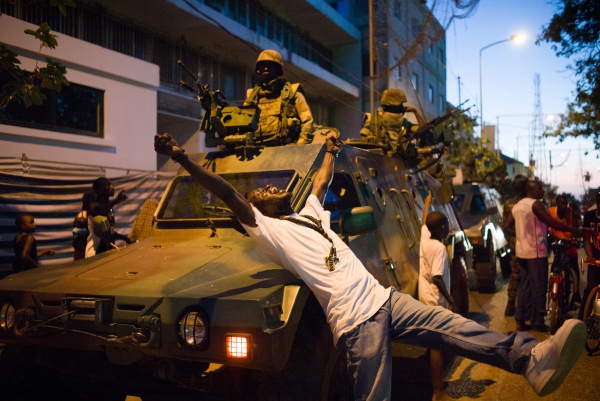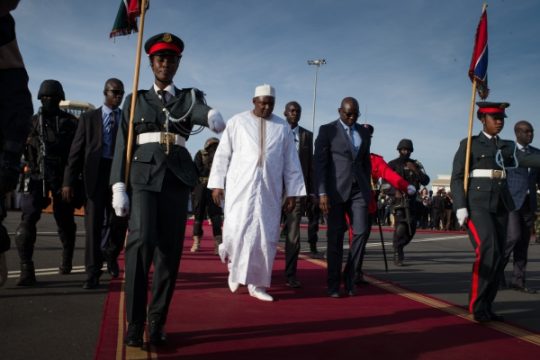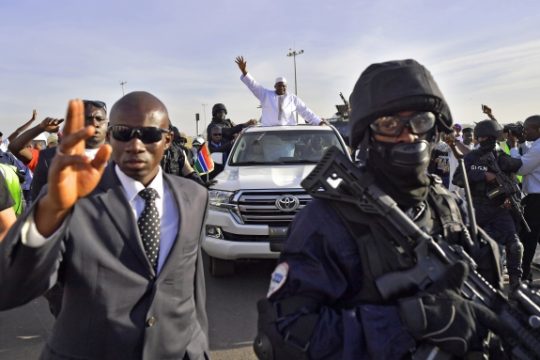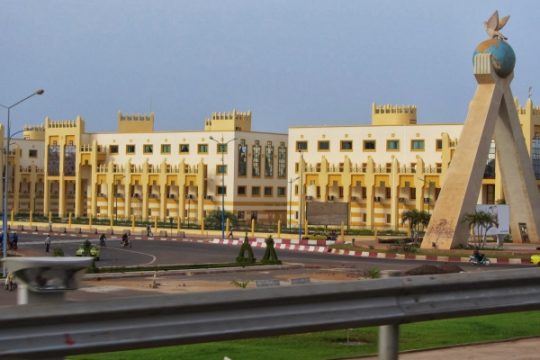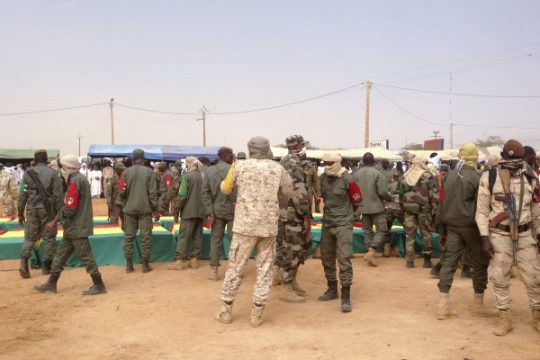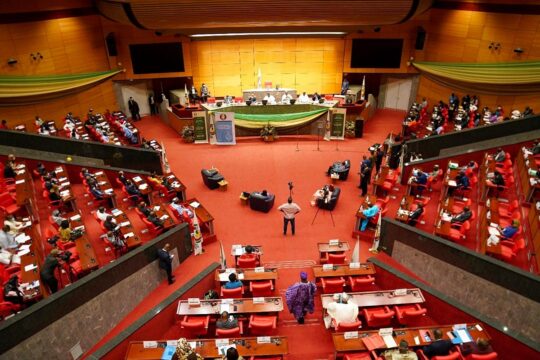This week, JusticeInfo looked at the first steps being taken by judicial authorities in The Gambia to deal with the innumerable crimes committed under the long rule of Yahya Jammeh, who is now in exile. Meanwhile, people in Mali suspect that the new government has been formed not to push the stalled peace and reconciliation process forward but to prepare the re-election in 2018 of President Ibrahim Boubacar Keita and his political clan.
New Gambian president Adama Barrow, who has vowed to make his mandate a three-year transition, has no time to lose. Three months after his investiture, his government has already opened a series of investigations into crimes committed during the 22-year autocratic rule of Yahya Jammeh, including forced disappearances. The first results are encouraging, despite very real difficulties.
“Thanks to information from the first suspects questioned, several bodies have already been found, including that of Solo Sandeng,” writes Maxime Domegni, JusticeInfo’s West Africa correspondent. Opposition figure Sandeng was arrested along with others in April 2016 as he took part in a public demonstration calling for political reforms. A few days later it was announced that he had died in detention. “His death is considered to be one of the last killings committed under Jammeh’s regime,” writes Domegni. “It caused outrage in the opposition and international opinion.”
But this legitimate quest for justice is not without difficulties in what may be a new Gambia but where many employees of the old regime are still in place in the administrative and judicial authorities. “The case of former intelligence agents suspected of involvement Solo Sandeng’s murder demonstrates the current state of the country’s judicial system,” Domegni continues. “The six judges (including four Nigerians) of the Supreme Court are the same ones that were at the beck and call of Yahya Jammeh. They have been maintained in office despite strong opposition from the country’s Bar.”
Fatoumatta Jawara, a former opposition figure who was released from Jammeh’s jails after Adama Barrow took office, advocates scrapping the bad laws of the old regime, but rejects all forms of revenge. “I really think that if we act in a spirit of revenge, we will take the country backwards,” says this lady who was elected MP after she was freed from jail. “But we will not let them introduce laws that do that, we will prevent it.”
This apparent pragmatism in Banjul does not seem to be shared in Mali’s capital Bamako. Those who expected a government of national unity after the Conference of National Understanding held in late March-early April, are disappointed. The new government team, announced on April 11, has no representatives from armed groups that signed the “Algiers Accord for Peace and Reconciliation in Mali” with the government. This agreement, signed in May-June 2015, is meant to bring peace to the North of the country. But two years later, its implementation is still stymied by mistrust between pro-government groups of the “Platform” and the Coordination of Awazad Movements (CMA), a coalition of mainly Touareg rebel groups. “After the Conference of National Understanding, we were expecting a government that would be resolutely committed to tackling the challenges,” Malian opposition leader Soumaila Cissé told Studio Tamani, our Fondation Hirondelle partner in Bamako. “The President said everyone was on board the train, but we see that the CMA and the Platform have got off at the nearest station!” Cissé thinks it is “a clear failure” that there are no representatives of these armed groups in the new cabinet. He also says the fact that “all the heads of political parties allied to the RPM (ruling party) are members of the government and have important posts” shows that “the choices were made just so as to prepare the next presidential election” in 2018.
JusticeInfo also looked at the situation on the other side of Africa in Tanzania, which has so far been reputed as a haven of peace and stability amidst perpetually troubled neighbours. But one year after the election of current president John Magufuli, he is accused of being more and more autocratic. Activists claim that the new regime seems determined to silence all criticism at any price, including attacks on the press, abductions of musicians and political figures. Freedom of opinion and expression is increasingly under threat in Tanzania, they say.




